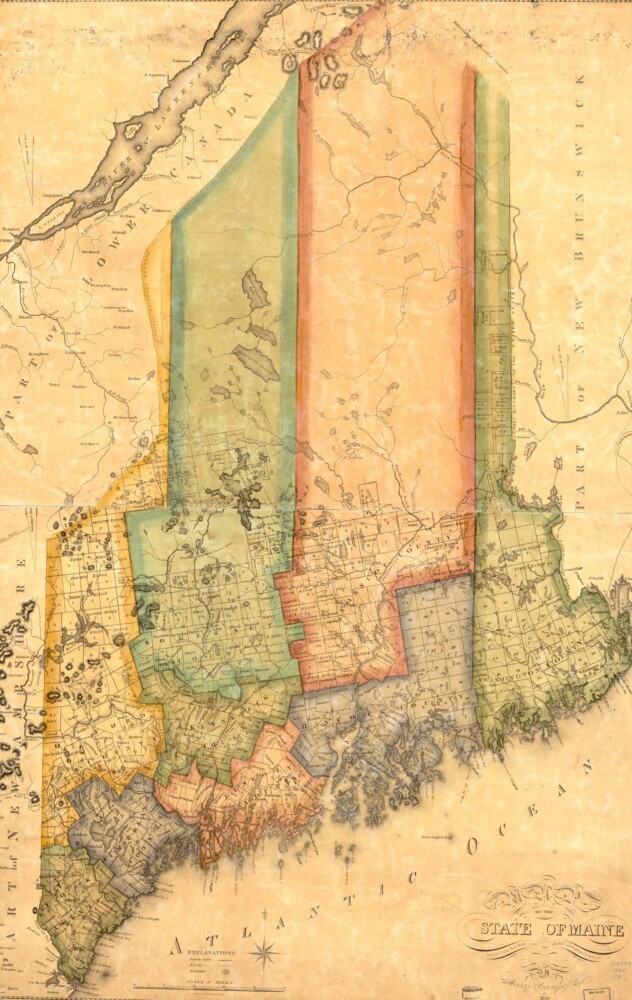March 15, 1820: Maine is admitted to the Union as the 23rd U.S. state. It had been part of Massachusetts until then. William King (1768-1852), of Bath, is declared acting governor until elections can be held in April. King later wins that election.


William King painted in 1806 by Gilbert Stuart. Image courtesy of the Maine State Museum, Maine State House Portrait Collection 72.19.93
Statehood was achieved in Congress through the Missouri Compromise, which allowed Maine to become a free state provided that Missouri be admitted as a slave state, thereby keeping the total number of free states equal to the total number of slave states, and keeping the number of U.S. senators representing each group equal. Maine’s U.S. Rep. John Holmes proved to be a key force in moving the plan through Congress.
Linking Maine statehood to the slavery problem horrified many influential residents of the state, and the unexpected snag caused bitter political battles between strict abolitionists and pragmatists who could find no other means to achieve statehood.
Though Maine’s population grows rapidly at the time of statehood, today it is the least densely populated state east of the Mississippi River.

The Eastern Argus, Portland’s weekly newspaper at the time, publishes the law making Maine a state, as well as the nomination of William King as governor, in its edition for the week beginning March 14, 1820.
The Eastern Argus, Portland’s newspaper, publishes in its edition for that week the text of the law making Maine a new state. It reads:
“Be it enacted by the Senate and House of Representatives of the United States of America in Congress assembled, That, from and after the fifteenth day of March, in the year one thousand eight hundred and twenty, the state of Maine is hereby declared to be one of the United States of America, and admitted to the Union on an equal footing with the original states, in all respects whatever.”
Joseph Owen is a retired copy desk chief of the Morning Sentinel and Kennebec Journal and board member of the Kennebec Historical Society. He can be contacted at: jowen@mainetoday.com.
Send questions/comments to the editors.


